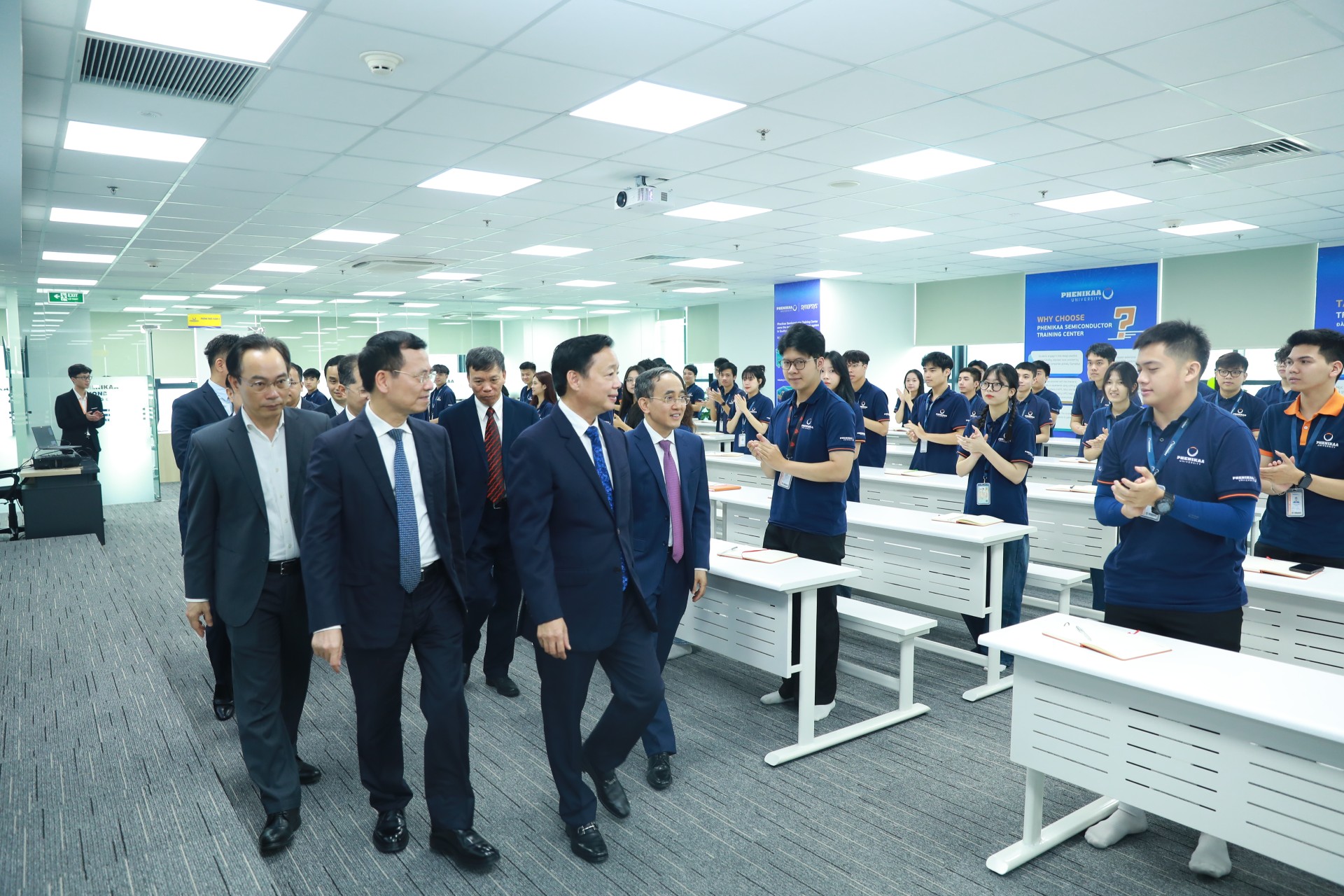On May 4-5, in Hanoi, Deputy Prime Minister Tran Hong Ha attended the international workshop “Vietnam Semiconductor Human Resources in the Global Supply Chain”, organized by Phenikaa Group, Phenikaa University in collaboration with Synopsys Corporation and Arizona State University in the US.
At the workshop, delegates discussed important issues surrounding human resources for the semiconductor microchip sector in Vietnam, such as the feasibility of training 50,000 Vietnamese microchip engineers by 2030. According to Assoc. Prof. Dr. Ho Xuan Nang, Chairman of Phenikaa Group, establishing a close, mutually supportive relationship between the three “houses” – state agencies – institutes, universities, and businesses in the industry – is an essential requirement to promote the training of semiconductor microchip human resources to ensure meeting social needs in both quantity and quality.

Deputy Prime Minister Tran Hong Ha and delegates visit Phenikaa University within the framework of the workshop. Photo: VIET HA
Minister of Information and Communications Nguyen Manh Hung emphasized: “Vietnamese people have the gene for science, technology, engineering, and mathematics, which is very suitable for the semiconductor industry. The advantage of genes is as good as the advantage of geopolitics. This is a unique advantage that cannot be copied”.
Speaking at the workshop, Deputy Prime Minister Tran Hong Ha affirmed that the semiconductor microchip industry is a foundational industry that shapes the development of many different sectors in the global economy. The world has witnessed the semiconductor chip market maintaining a fast and stable growth rate over the past 20 years and is forecasted to become an industry with a scale of thousands of billions of USD by 2030.
In the trend of regional and global supply chain shifts, Vietnam has advantages in terms of geo-economics, a favorable investment and business environment, with attractive investment attraction policies, a young labor force with basic skills, the ability to access new technologies; a convenient source of raw materials… Besides, Vietnam currently has a comprehensive strategic partnership with most countries with developed semiconductor industries. Therefore, Vietnam is facing a great opportunity to become a strategic destination in the global supply chain of the semiconductor industry.
According to the Deputy Prime Minister, the Government is focusing on developing the Development Strategy for the semiconductor industry and the Project on Training Human Resources for the semiconductor industry according to international standards. It is considered a key issue, an opportunity, and also the biggest challenge for Vietnam to quickly build a high-quality workforce with expertise in semiconductor microchips to make the most of its potential, advantages, and participate in the value chain of the semiconductor industry.
The Deputy Prime Minister affirmed the need to build a human resources tower to meet the human resources demand for the semiconductor industry ecosystem, as well as to promote the capacity, strengths, especially in mathematics and basic sciences, which are the strengths of Vietnam. Therefore, mechanisms are needed to encourage businesses to participate in training and improving the quality of human resources. To train tens of thousands of high-quality workers in the semiconductor industry, it is necessary to prioritize training and attracting a team of high-quality teachers and lecturers with specialized experience in the industry to improve the quality of teaching.












